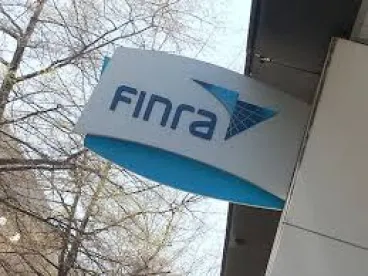Welcome to the latest issue of Bracewell’s FINRA Facts and Trends, a monthly newsletter devoted to condensing and digesting recent FINRA developments in the areas of enforcement, regulation and dispute resolution. This month, we report on a challenge in the federal courts to the constitutionality of FINRA’s regulatory and enforcement programs, FINRA’s latest annual financial report, a note of caution with respect to the use of emojis, as well as FINRA’s continuing campaign to enforce Regulation BI.
DC Circuit Court of Appeals Questions Constitutionality of FINRA’s Enforcement Powers
Earlier this month, the US Court of Appeals for the District of Columbia Circuit (the DC Circuit) issued an order granting an emergency injunction that enjoined FINRA from continuing its enforcement proceeding against Alpine Securities Corporation (“Alpine”). The decision builds upon recent Supreme Court precedent that called into question the constitutionality of decisions issued by SEC administrative law judges (ALJs) and has far-reaching implications for FINRA’s regulatory and enforcement arms.
Alpine’s tangle with FINRA’s Department of Enforcement began in 2018, when FINRA Enforcement filed a Complaint that alleged Alpine had acted improperly in response to the firm’s mounting financial challenges. Specifically, FINRA alleged that Alpine had improperly used customer funds and securities to pay the firm’s $5,000 monthly account fee, misappropriated certain customer positions valued at less than $1,500 on the grounds that they were worthless, and improperly identified certain customer accounts as abandoned. Following a 19-day hearing, an Extended FINRA Hearing Panel issued a Decision on March 22, 2022, which found Alpine had violated a raft of FINRA Rules, expelled Alpine from FINRA membership, and ordered Alpine to pay restitution of more than $2.3 million.
Alpine appealed from the FINRA Decision, arguing that FINRA’s enforcement action violated the Constitution because FINRA’s hearing officers impermissibly wielded executive power that may be exercised only by the executive branch of government. Alpine sought an emergency injunction from the DC Circuit pending its appeal. On July 5, 2023, the DC Circuit granted the emergency injunction.
In its Order, the DC Circuit held that Alpine was likely to succeed on the merits of its appeal. While noting that the injunction order was “not a decision on the merits,” the DC Circuit nevertheless held that “Alpine has raised a serious argument that FINRA impermissibly exercises significant executive power.”
The DC Circuit’s decision expands on a 2018 Supreme Court decision, Lucia v. SEC. In Lucia, the Supreme Court held that ALJs within the SEC were “Officers of the United States,” who must therefore be appointed in accordance with the Appointments Clause of the Constitution. Holding that FINRA’s hearing officers “are near carbon copies of those ALJs,” the DC Circuit has now applied the same logic to FINRA’s enforcement powers.
The implications of the DC Circuit’s decision on Alpine’s motion for an emergency injunction are as yet unclear.For one thing, the DC Circuit has not yet ruled on the merits, and its ultimate decision may be more limited. For another, Alpine’s appeal could well be headed to the Supreme Court if it prevails in the DC Circuit on its challenge to the constitutionality of FINRA’s enforcement powers.
But at a minimum, the DC Circuit’s preliminary ruling casts a shadow over the future of FINRA’s enforcement powers—and at the extreme, could spell the end of FINRA’s ability to enforce its own regulatory program without specific authority from the federal government. The DC Circuit’s ruling could also have far-reaching implications for the regulatory programs of other selfregulatory organizations like FINRA.
FINRA Expels Another Firm for Reg BI Violations
Earlier this month, FINRA expelled New Jersey-based broker dealer Monmouth Capital Management for violating Reg BI. According to the AWC, Monmouth failed to supervise its registered representatives and provided false and misleading disclosures on its Client Relationship Summary, Form CRS. “Monmouth abdicated its responsibility to reasonably supervise its representatives’ trading, resulting in substantial harm to customers, including Gold Star families,” Christopher Kelly, Senior Vice President and Acting Head of FINRA’s Department of Enforcement, said in a statement. According to Kelly, “the egregiousness of the firm’s sales practice and supervisory violations necessitated expulsion of the firm from FINRA membership.”
Monmouth becomes the second firm to be expelled for allegations that include violations of Reg BI. Back in May, Salomon Whitney Financial was the first broker-dealer to be expelled. Though Monmouth did not admit or deny the findings set forth in the AWC, the facts alleged detail pervasive misconduct at the former broker-dealer. According to the AWC, between August 2020 and February 2023, Monmouth generated $3.9 million in commissions and trading costs by excessively trading 110 accounts, 42 of which were churned. An abundance of red flags, including 24 consecutive monthly exception reports indicating potential churning, were ignored by the firm. The AWC cites Monmouth for violations of the Care Obligation of Reg BI, Section 10(b) of the Securities Exchange Act of 1934, and SEC Rule 10b-5.
FINRA Posts $218 Million Net Loss for 2022
In its annual report, FINRA revealed that it posted a net loss of $218.1 million in 2022, a sharp decline from the $218.8 million in net income FINRA realized in 2021
Digging into the numbers, FINRA lost $166.9 million on its investment portfolio in 2022 and $60.2 million on its operations, which was offset in part by $9 million in interest and dividend income. FINRA’s expenses also rose by $124.4 million in 2022, due to costs related to its 3,980-person staff. The most significant costs were tied to compensation and benefits, as well as increased spending for cloud computing and software. The total amount of fines collected by FINRA also contributed to its less-than-stellar bottom line. While FINRA collected $103 million for fines imposed on member firms in 2021, that number fell to $54.5 million in 2022.
FINRA officials did not seem surprised by the financial report. “This year’s operating loss was expected, and was in line with our multi-year strategic plan that we outlined in 2020,” FINRA CEO Robert Cook and Chief Financial and Administrative Officer Todd T. Diganci wrote in the report. Looking ahead, Cook and Diganci expect FINRA’s revenue and expenses to increase in 2023. “We further expect that expenditures will outpace revenues over the next several years, even taking into account fee increases that were filed with the SEC in December 2020 and phased in over three years, beginning in 2022,” Cook and Diganci wrote. FINRA is drawing on its reserve portfolio to cover costs, according to the report.
Emojis Could Prompt a Customer Complaint, FINRA Warns
Love ‘em or hate ‘em, the use of emojis in text messages and emails may pose problems for broker-dealers if correspondence isn’t captured and monitored properly. “Emojis are something that didn’t exist in emails before,” Michael Solomon, head of FINRA’s national exam program, said at FINRA’s recent annual conference. “You can foresee situations in text messaging where an emoji might be a [Rule] 4530 customer complaint.”FINRA examiners “will be looking to see whether text messaging is ingested properly, just as email is ingested – how it’s surveilled and supervised, and whether there are changes to lexicon programs that are more geared to how people converse in email than in text messaging.”
Under Rule 4530, firms are required to keep records of all internal correspondence and business communications with customers and to promptly file reports with FINRA when firms uncover possible misconduct in the communications or receive written customer complaints. It is easy to see how emojis may complicate or obscure communications between brokers and customers. For example, if a client texts a broker saying, “nice recommendation,” followed by an angry emoji, the firm needs to understand what that means from a reporting perspective and what it should do with that information.
This is just the latest guidance from FINRA for so-called “off-channel” communications – those that occur outside a firm’s formal methods of communications. This has been an area of concern for FINRA, the SEC and CFTC in recent years and the expectation is that each of these regulatory organizations will expect increased vigilance in monitoring these communications.
Notable FINRA Notices
- Regulatory Notice 23-08 – FINRA issued a reminder to member firms of their obligations when selling private placement investments. In particular, FINRA highlighted members’ obligation to conduct a reasonable investigation of a security prior to any recommendation.
- The Notice begins by discussing the recent growth in the market for unregistered offerings, with the number of unique filings for private placements nearly doubling between 2013 and 2021. FINRA then catalogs the regulatory framework governing private placements and setting forth member firms’ obligations with respect to them, most notably including Regulation BI and FINRA Rule 2111 (Suitability). Finally, the Notice provides a prescription for best practices relating to satisfying these obligations.
- • Regulatory Notice 23-09 – Issued as a “companion notice” to Regulatory Notice 23-08 (discussed above), Notice 23-09 requests comments from interested parties as to FINRA Rules concerning capital formation. Among other things, the Notice discusses FINRA Rules 5130 and 5131, which regulate the initial public offering (IPO) process and the allocation and distribution of new shares. FINRA further outlines certain exemptions to these Rules that were issued and amended in 2019, in an attempt to promote capital formation. Against this backdrop, FINRA acknowledges that its Rules may still hinder the capital raising process in certain cases, and requests comments on its rules and/or processes in an effort to further facilitate capital formation.







 />i
/>i

